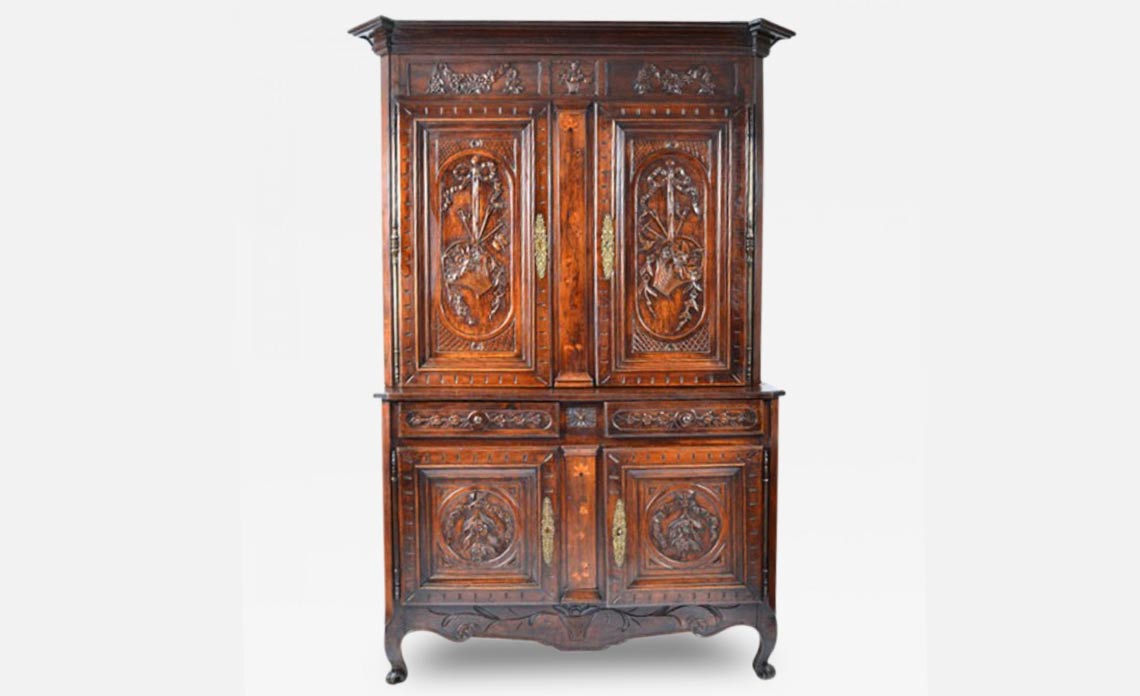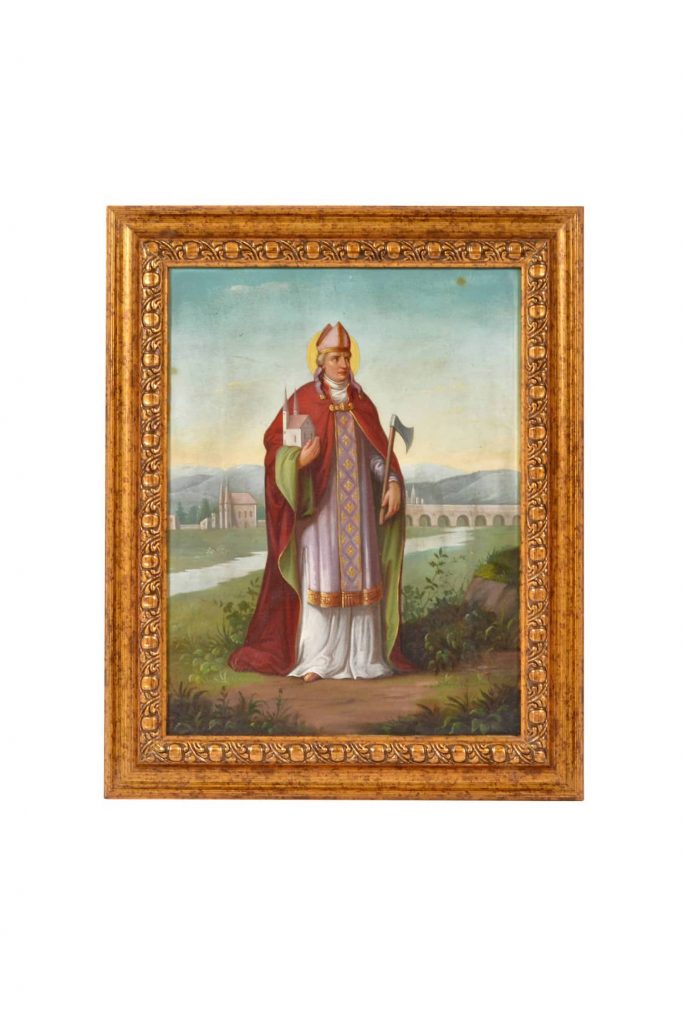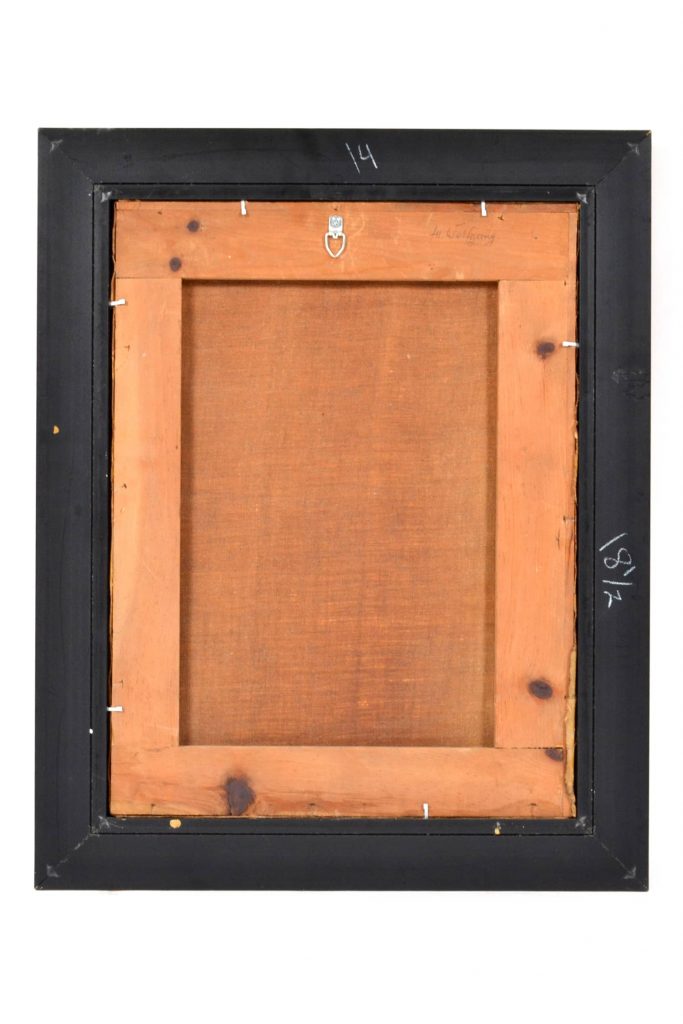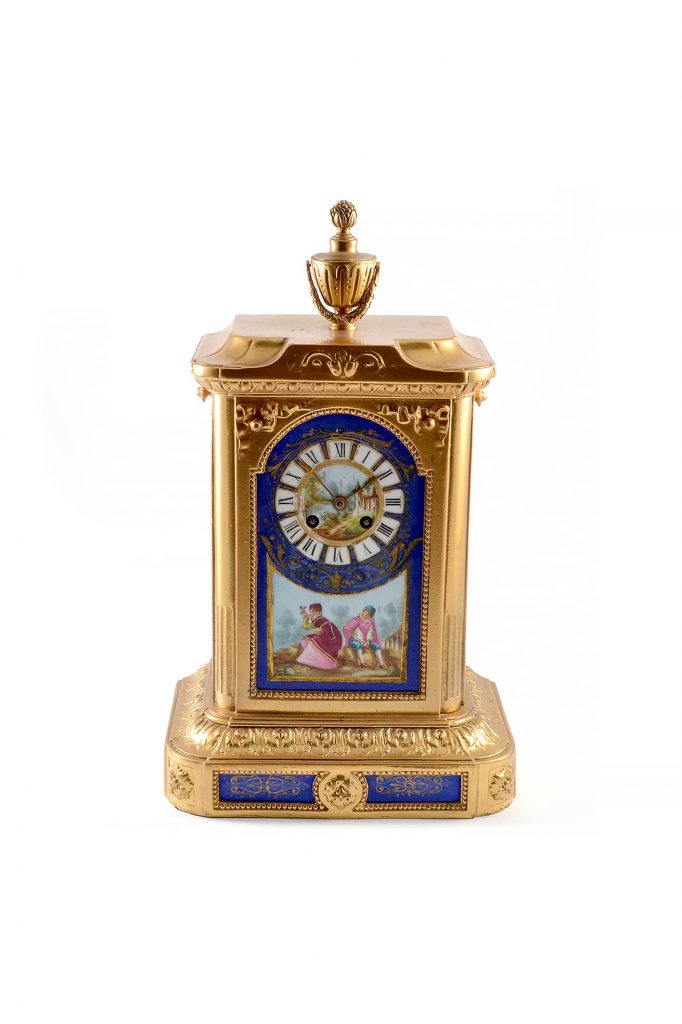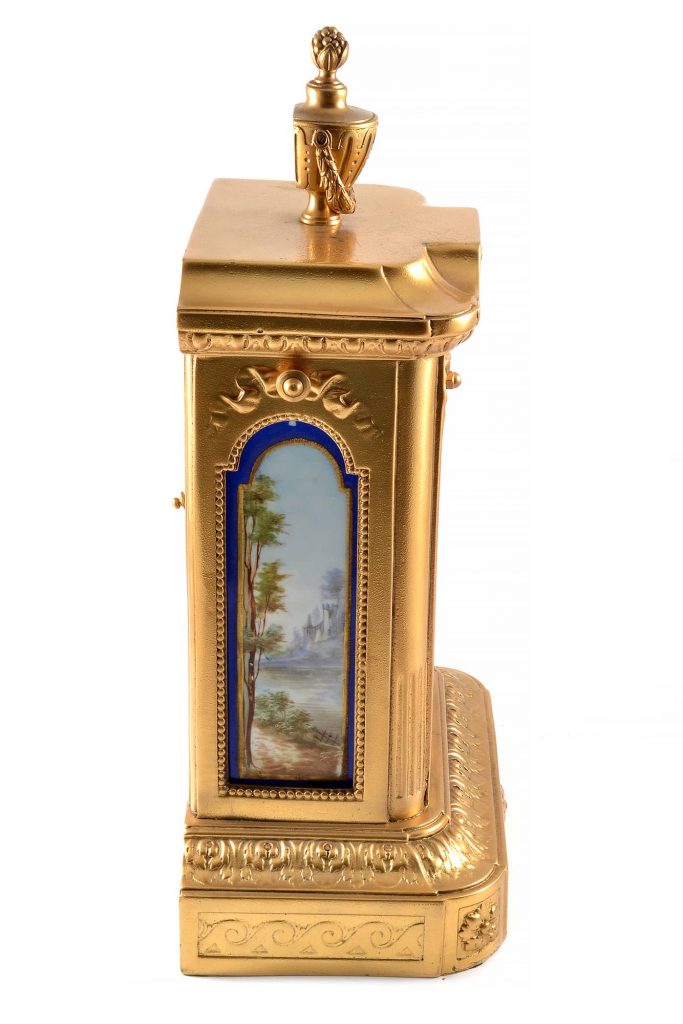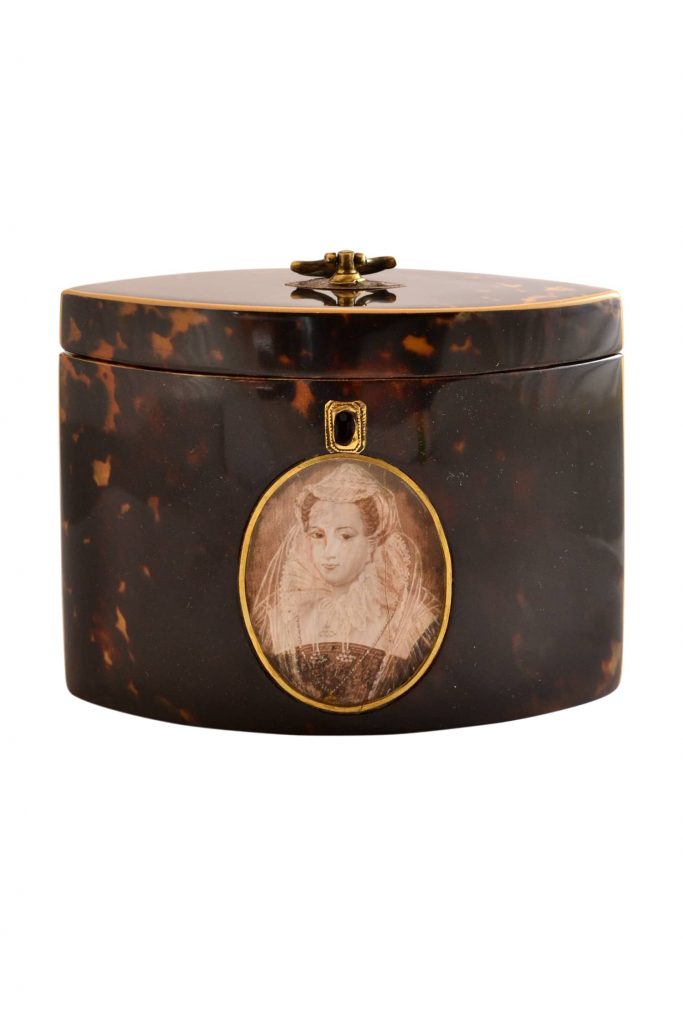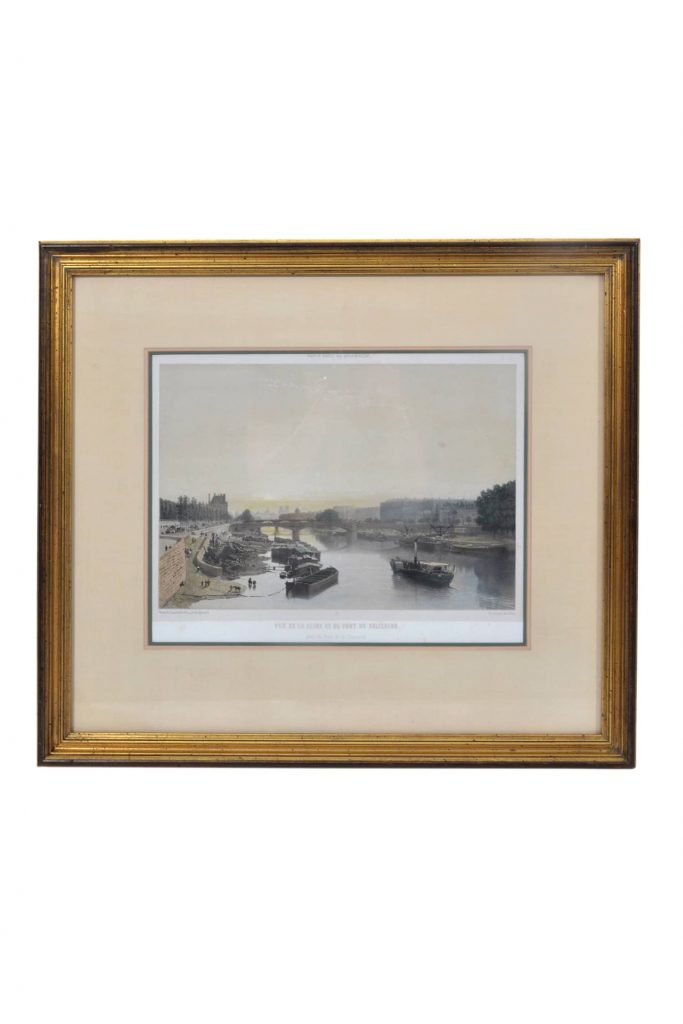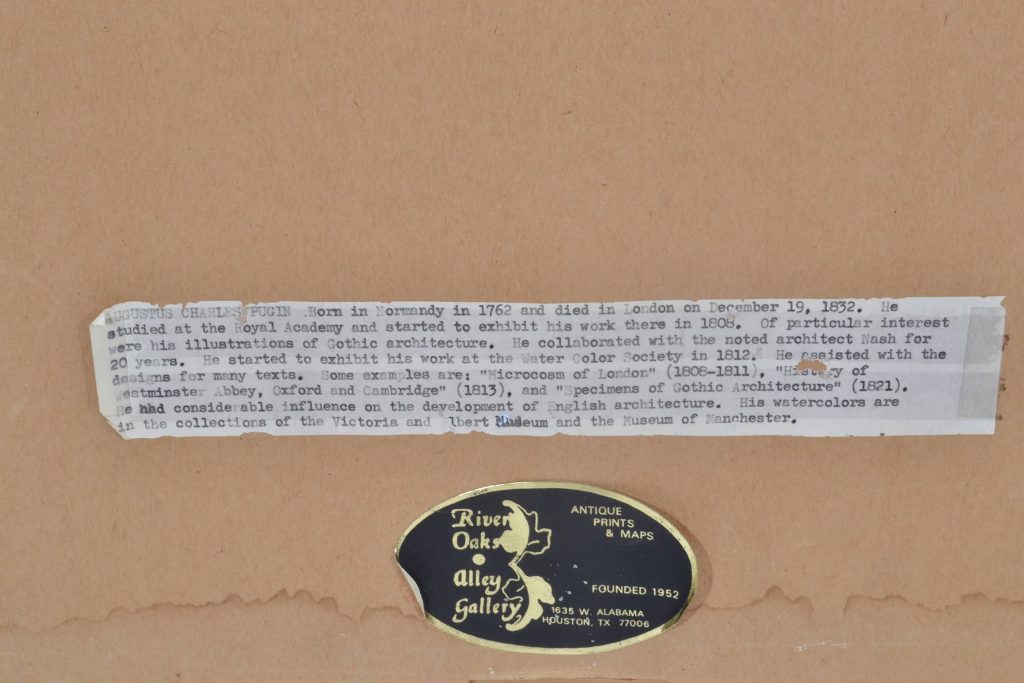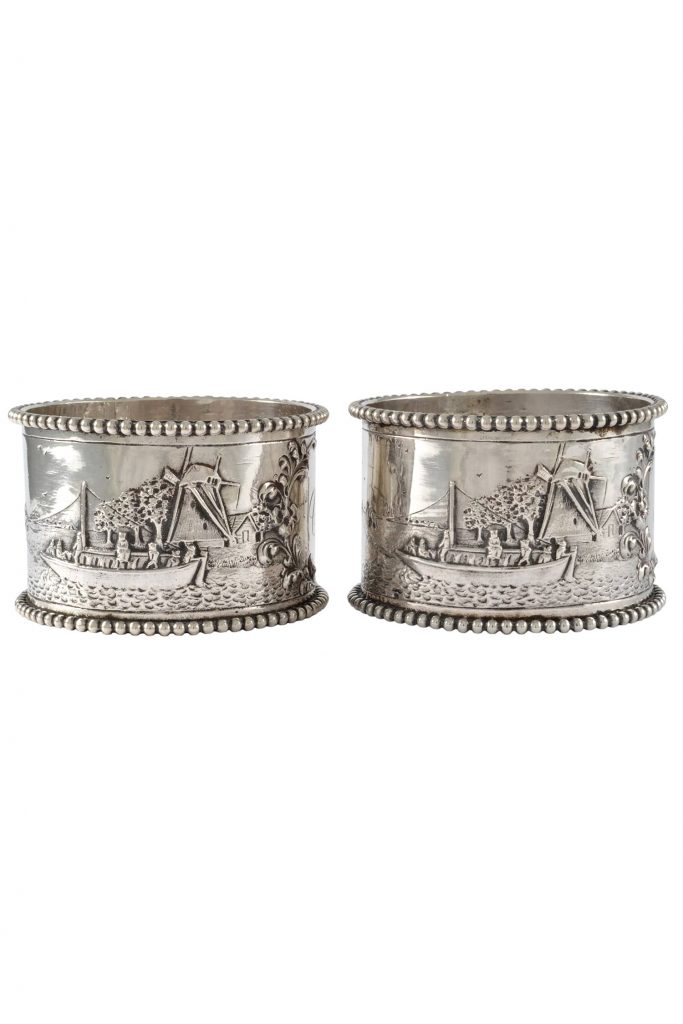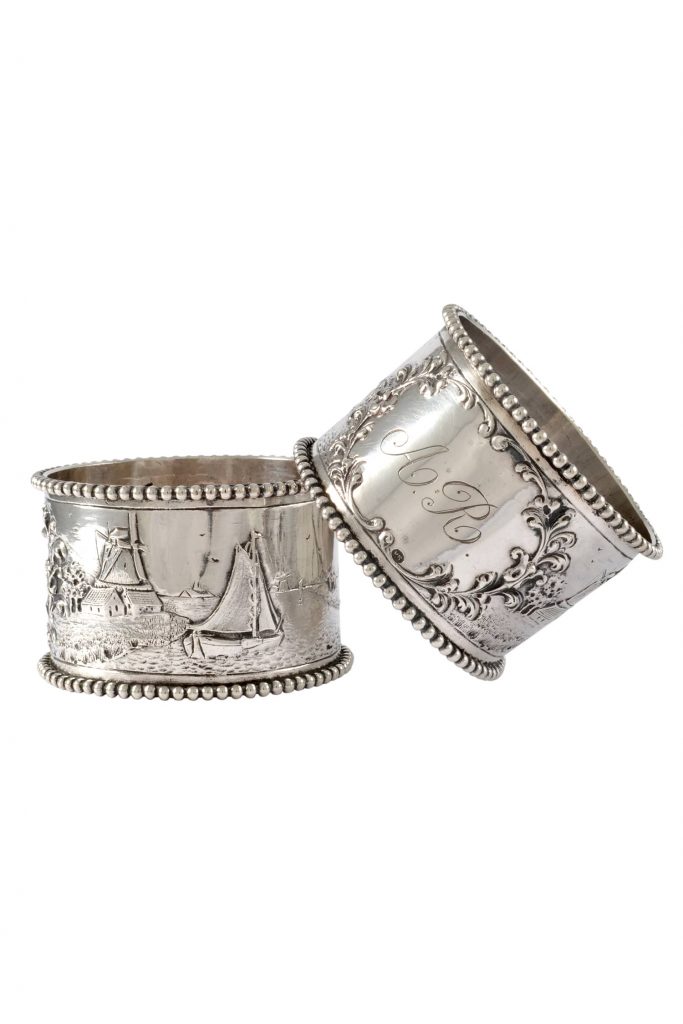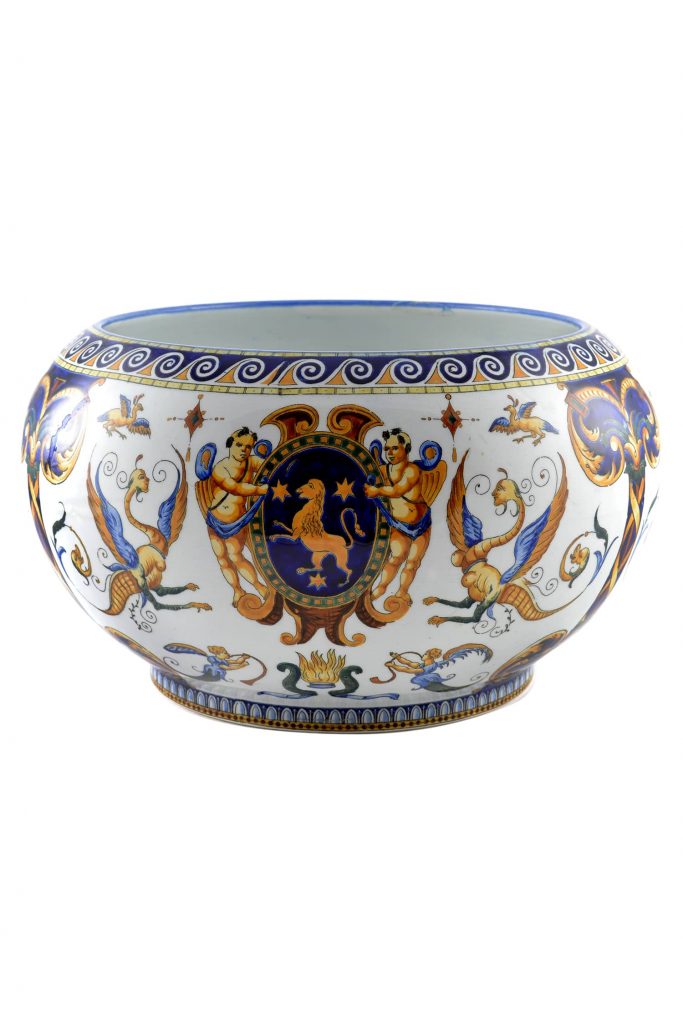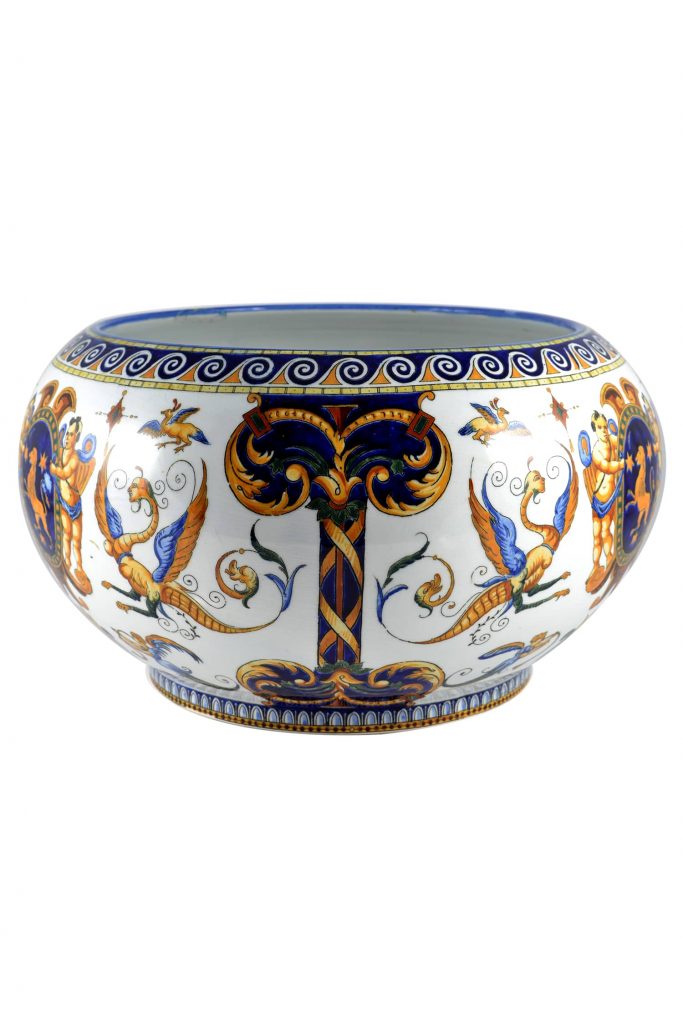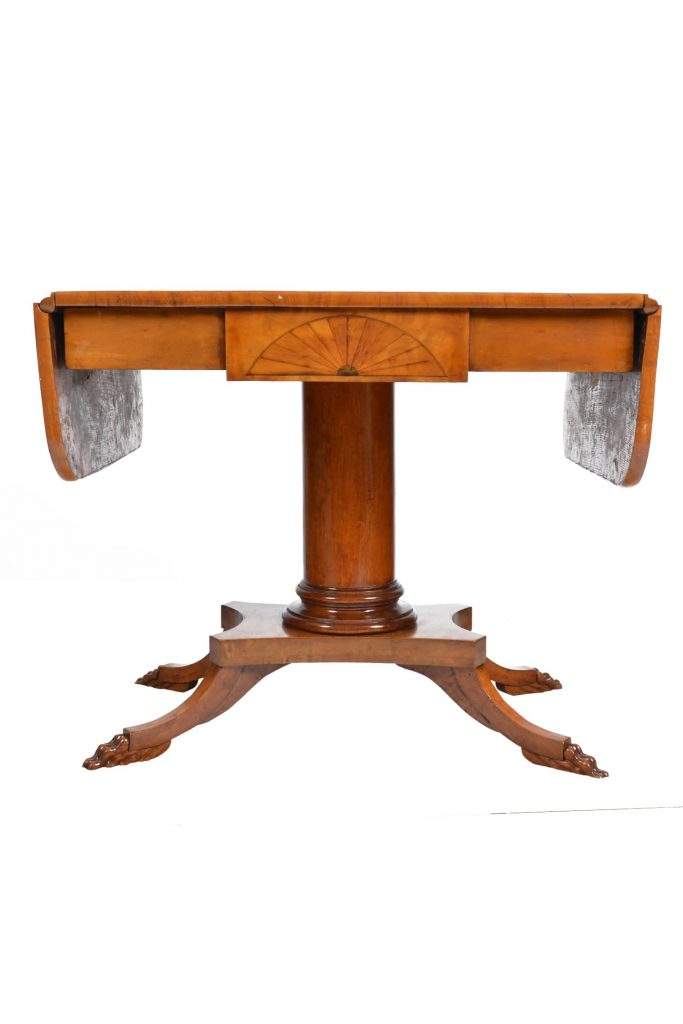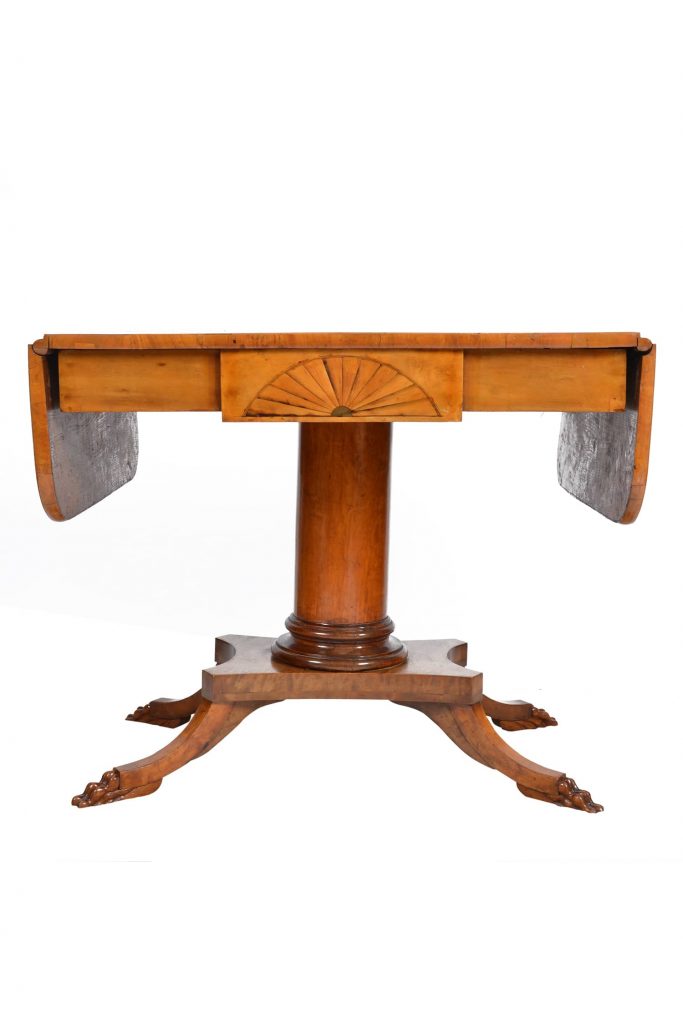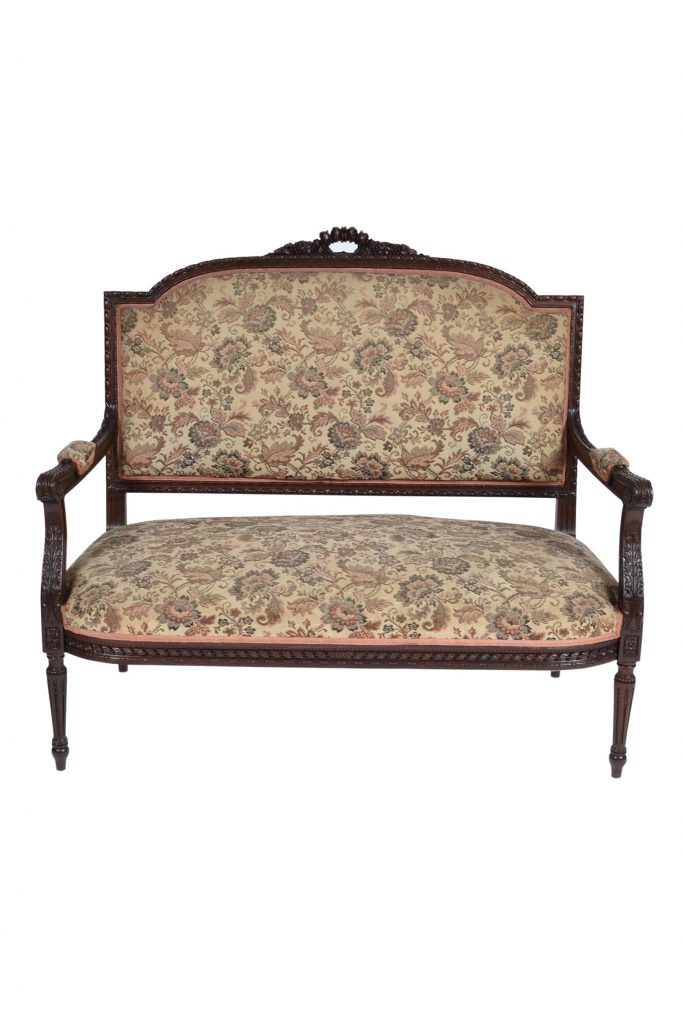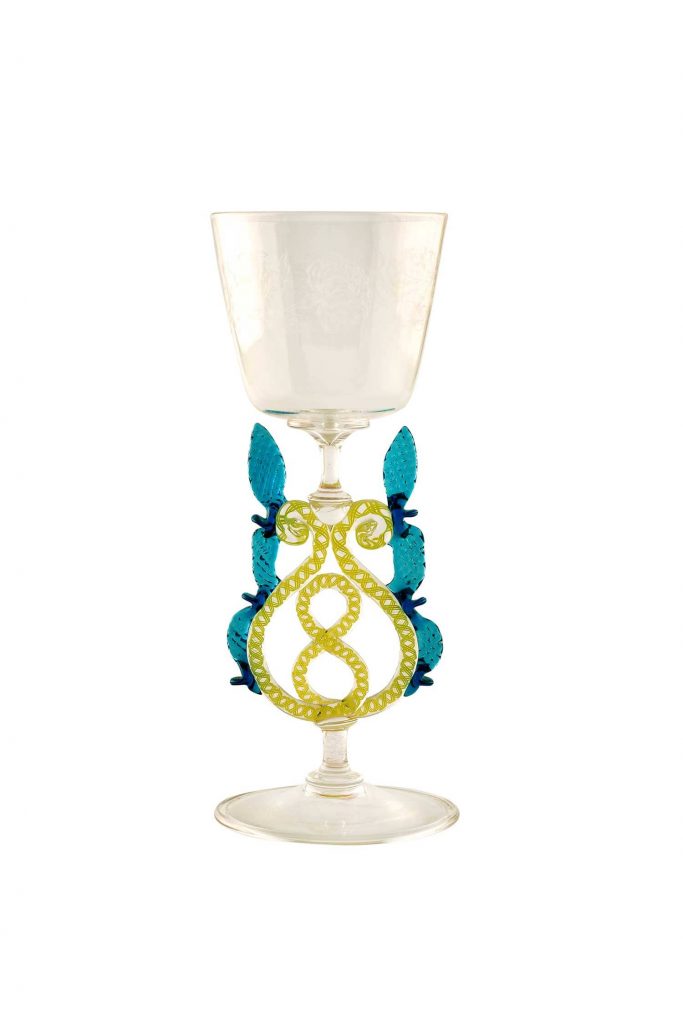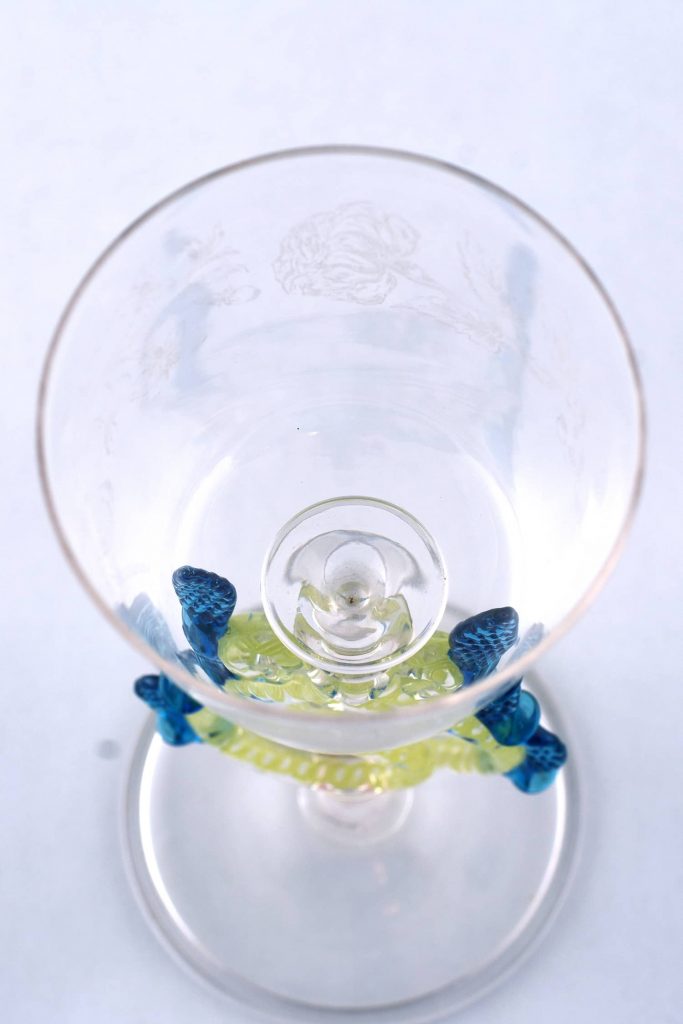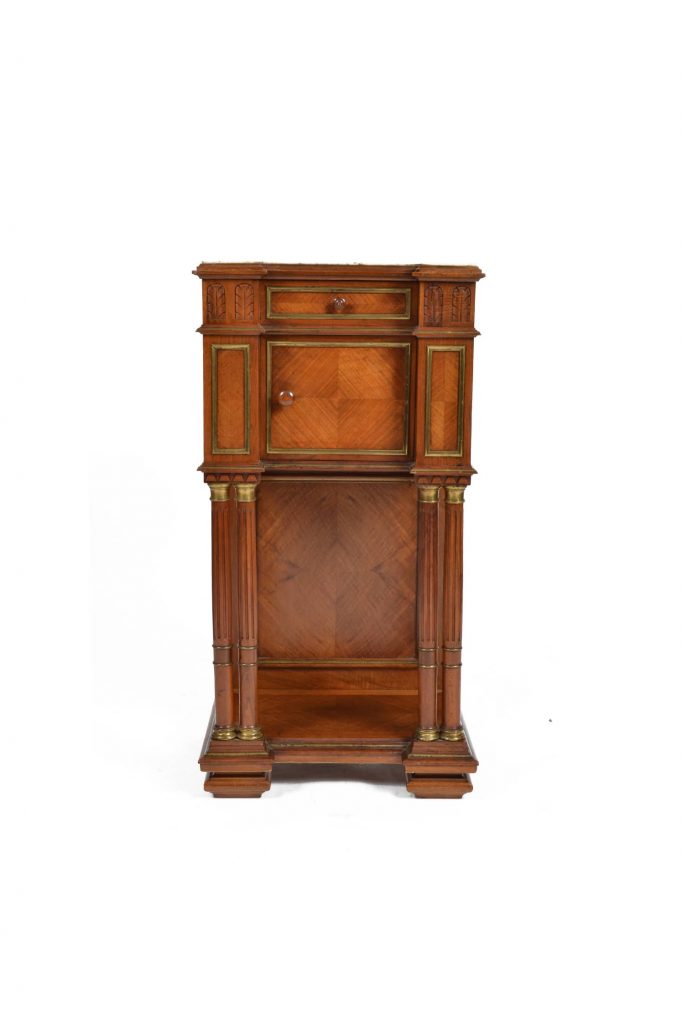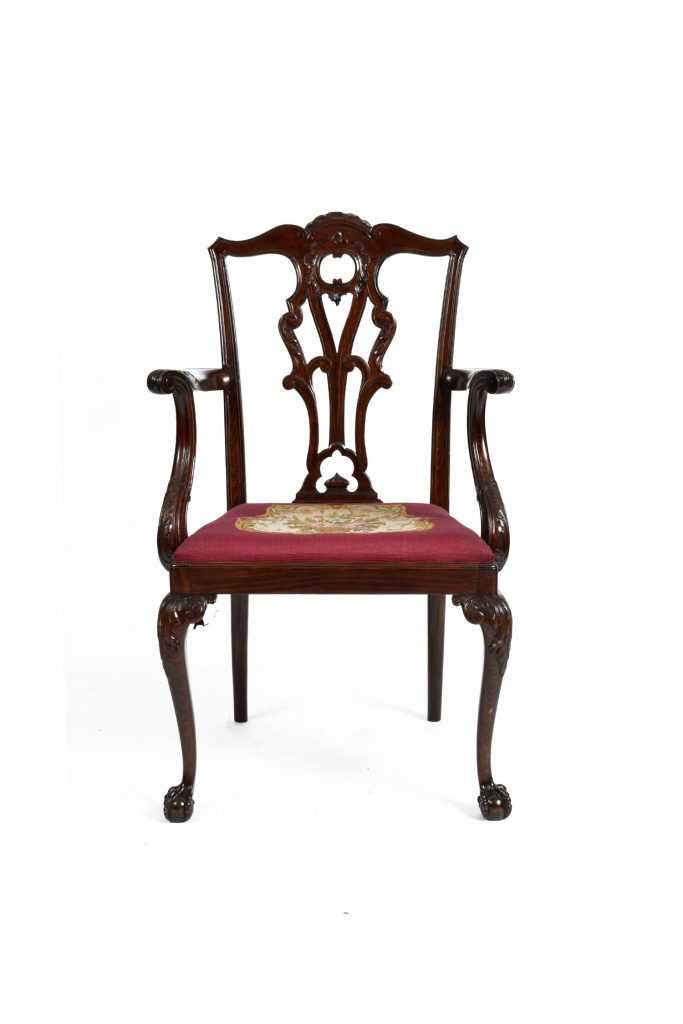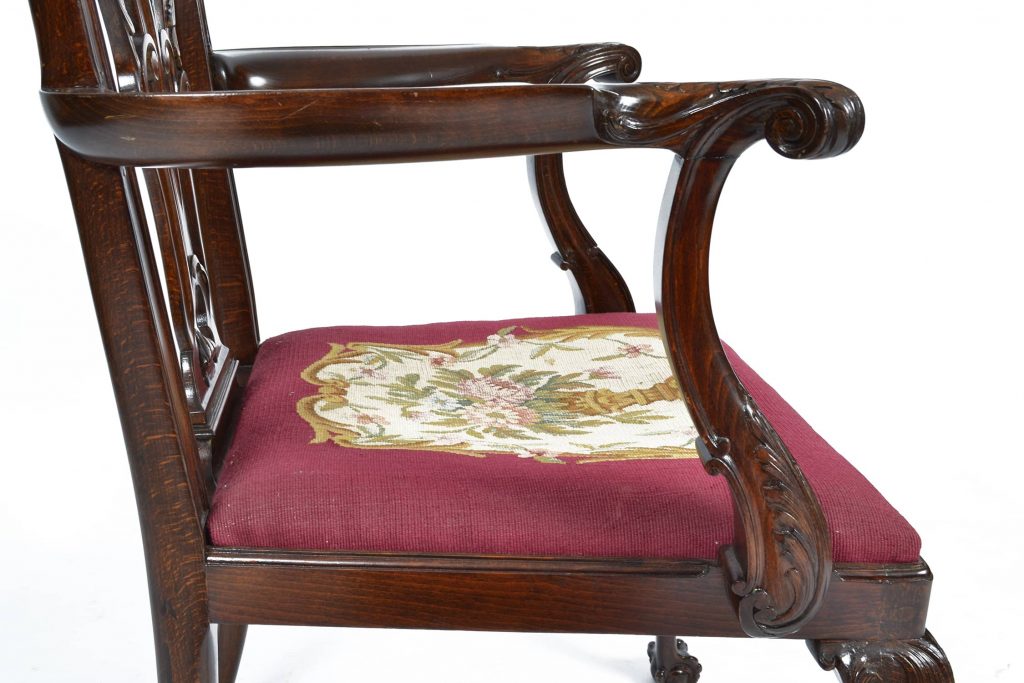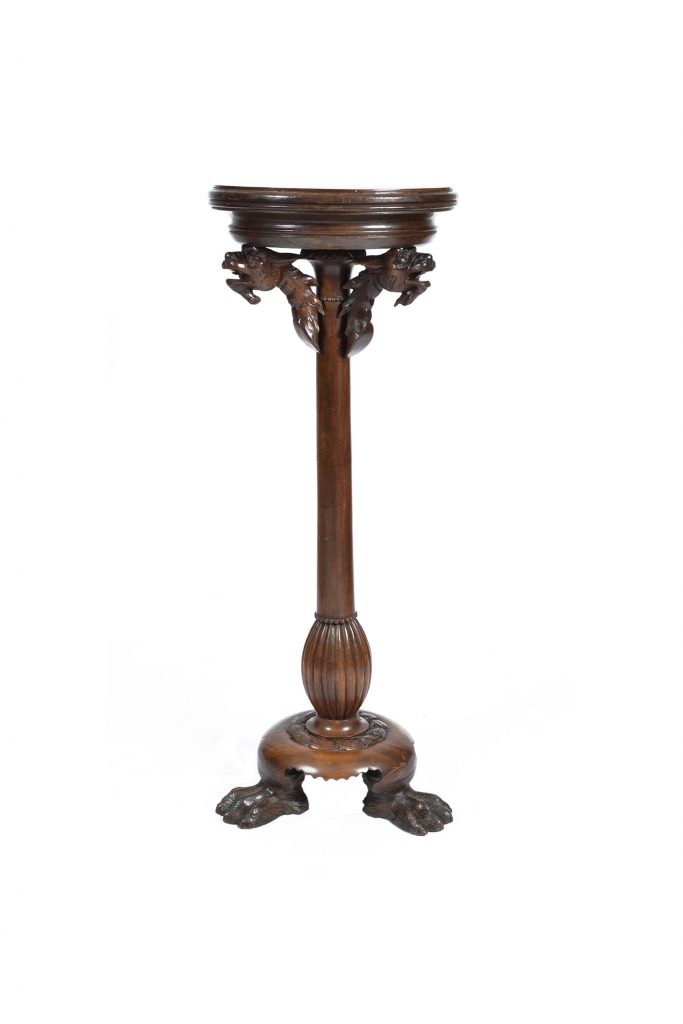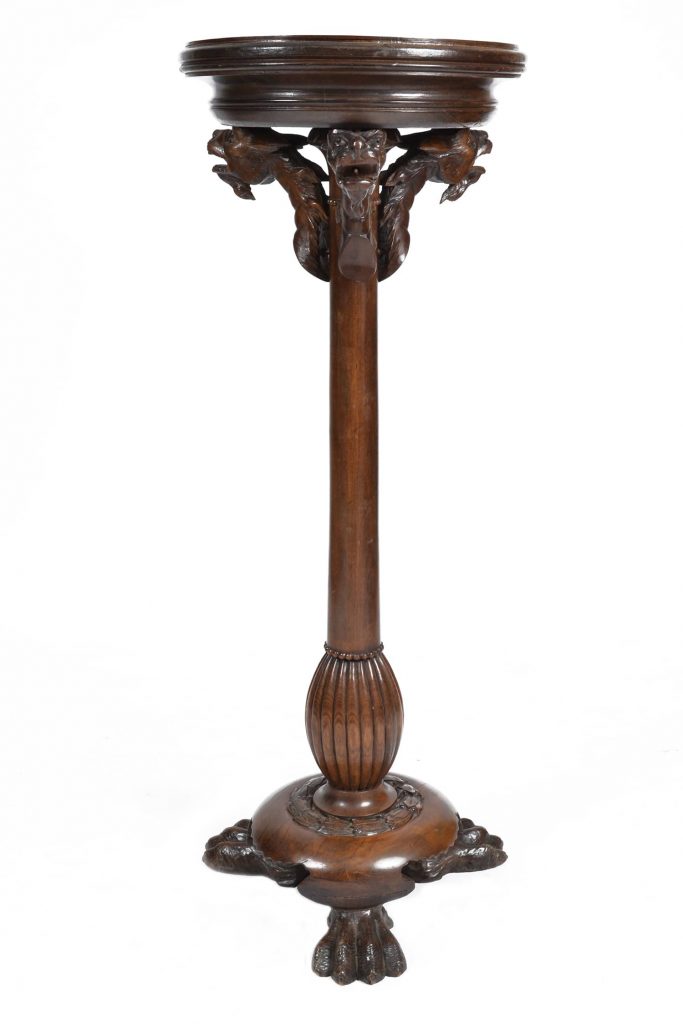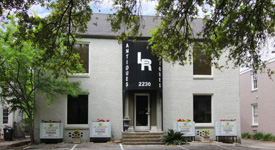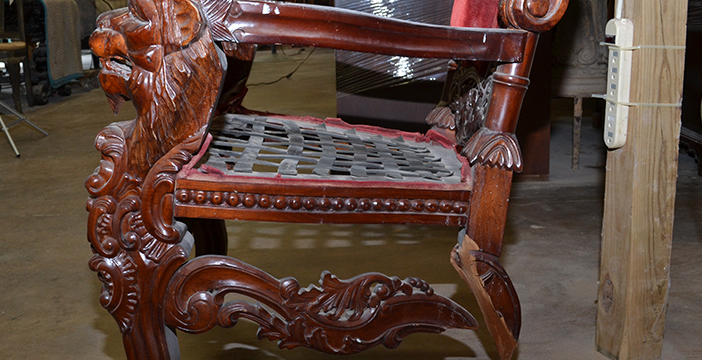Don’t let the word “country” fool you into thinking this antique cabinet is rustic or inelegant. To the contrary, LR Antiques’ circa 1800 Louis XV style walnut Provincial Deux Corps Cupboard Buffet is utterly refined. Antiques dealers use the term “country” or “provincial” to denote a piece of furniture manufactured in the French provinces. The French words “Deux Corps” translate simply to two bodies, the top and bottom cabinet sections.
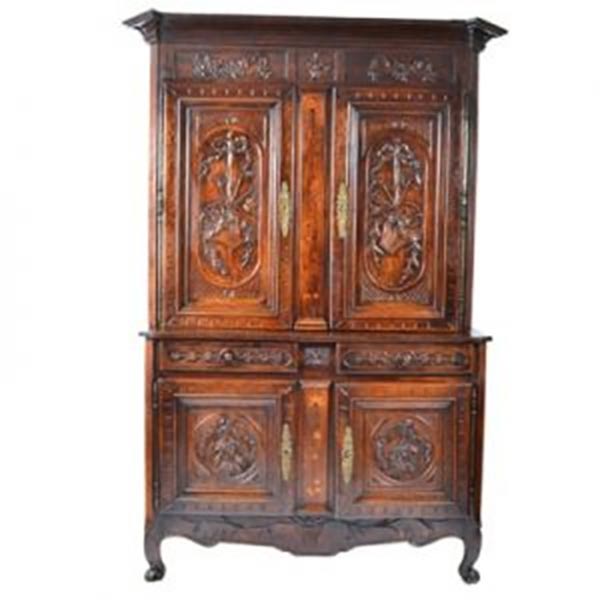
My eye was immediately drawn to the ornamental brass hardware which surrounds its keyholes. Flat decorative metal of this type is known as “escutcheon,” a fancy word with a Latin origin that means a shield or an emblem with a coat of arms. Antique cabinets typically had many locks with individual keys for the doors and drawers. Numerous locks were necessary, how else could you stop the damn servants from pilfering your stuff? For fun, I pulled Flaubert’s 1857 “Madame Bovary” from my library to see the novelist’s literary reference to servant-theft in the French provinces. Since Emma Bovary was in the habit of leaving her key in the buffet, Flaubert tells us, her girl Félicité used to steal a bit of sugar every night to take upstairs and eat after she said her prayers. Poor Emma would never have known that her provincial life was dreary and intolerable if she had not seen the parquet floors and fine linens in a low ranking nobleman’s chateau.
While I was admiring the cabinet’s carved panels, LR Antiques’ Lora Levin pointed out features which reveal its provincial origin, as well as the fact that it was custom-made for a marriage and probably part of a dowry.
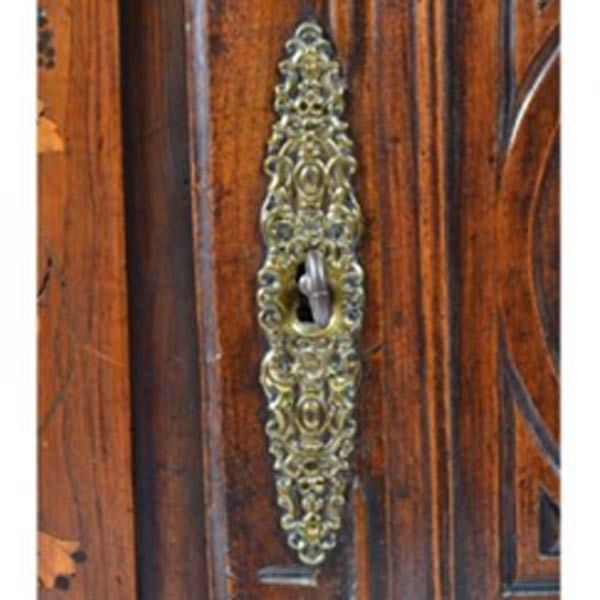
The carved decorative motifs of garlands and twigs, baskets of small wild flowers, butterfly and dove, for instance, are comparatively unpretentious and less elaborate. Stylistically and in their handling, they differ from the excessively frou-frou carvings by master craftsmen in Paris and other large urban areas. Further, the dove which references the Holy Spirit was incorporated for its personal meaning. A carved sunburst in the center of the apron similarly speaks symbolic spiritual language. A few additional factors indicate this cabinet was custom made, and that no others exist. The above mentioned hardware is a bit too sumptuous for a provincial piece, and the inclusion of floral inlay between the doors is a more exuberant touch than is commonly found. Cumulatively, these features tell us that the cabinet’s provincial owner was willing to spend extra money for a slightly more ostentatious marriage piece.





